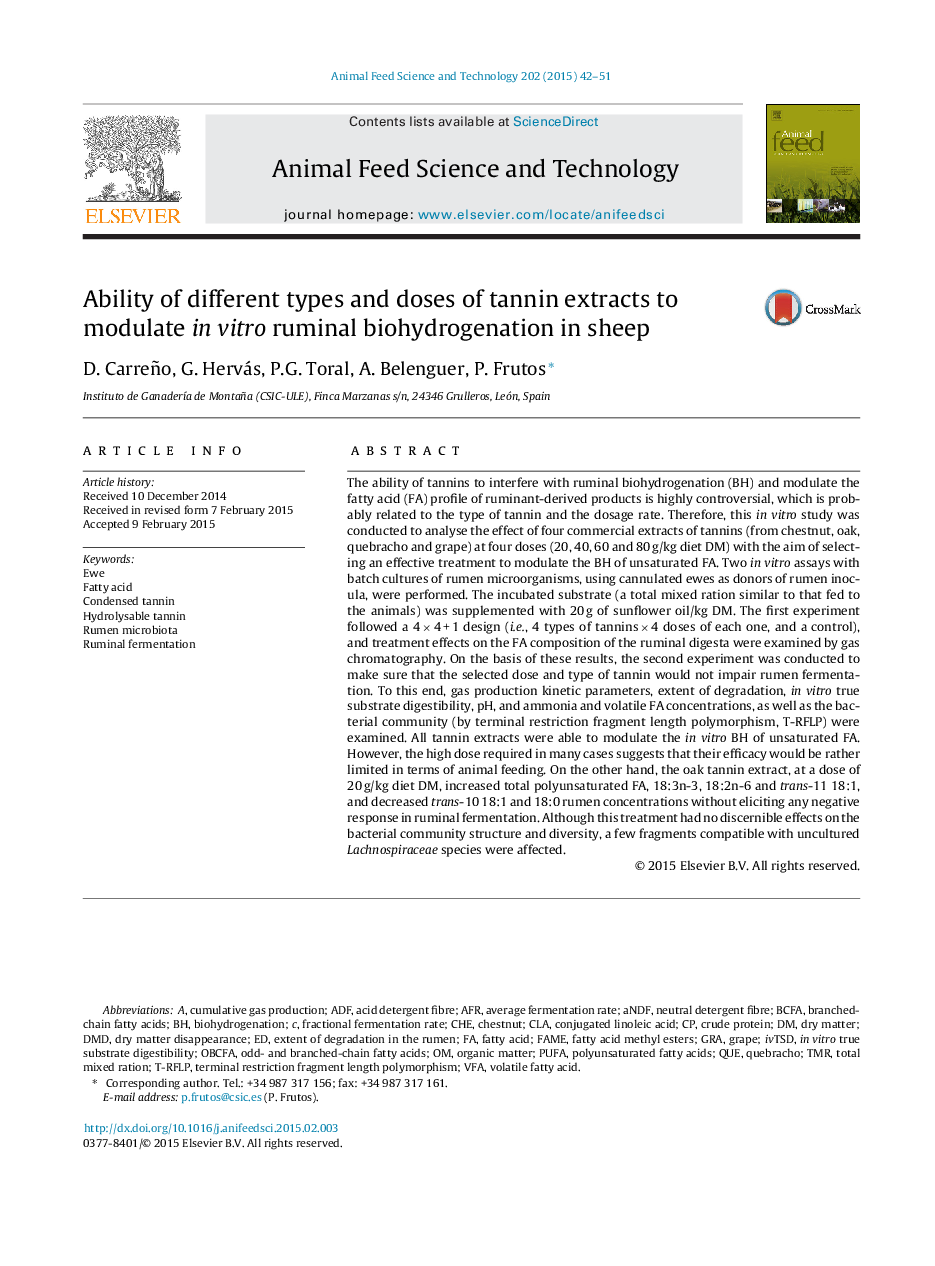| کد مقاله | کد نشریه | سال انتشار | مقاله انگلیسی | نسخه تمام متن |
|---|---|---|---|---|
| 2419420 | 1552383 | 2015 | 10 صفحه PDF | دانلود رایگان |
▶ Four commercial tannin extracts (quebracho, grape, oak and chestnut) were examined. ▶ The four tannin extracts were able to modulate in vitro fatty acid biohydrogenation. ▶ In many cases, the high dose required would be impractical under farm conditions. ▶ Oak tannins at 20 g/kg DM modulated biohydrogenation without impairing rumen fermentation.
The ability of tannins to interfere with ruminal biohydrogenation (BH) and modulate the fatty acid (FA) profile of ruminant-derived products is highly controversial, which is probably related to the type of tannin and the dosage rate. Therefore, this in vitro study was conducted to analyse the effect of four commercial extracts of tannins (from chestnut, oak, quebracho and grape) at four doses (20, 40, 60 and 80 g/kg diet DM) with the aim of selecting an effective treatment to modulate the BH of unsaturated FA. Two in vitro assays with batch cultures of rumen microorganisms, using cannulated ewes as donors of rumen inocula, were performed. The incubated substrate (a total mixed ration similar to that fed to the animals) was supplemented with 20 g of sunflower oil/kg DM. The first experiment followed a 4 × 4 + 1 design (i.e., 4 types of tannins × 4 doses of each one, and a control), and treatment effects on the FA composition of the ruminal digesta were examined by gas chromatography. On the basis of these results, the second experiment was conducted to make sure that the selected dose and type of tannin would not impair rumen fermentation. To this end, gas production kinetic parameters, extent of degradation, in vitro true substrate digestibility, pH, and ammonia and volatile FA concentrations, as well as the bacterial community (by terminal restriction fragment length polymorphism, T-RFLP) were examined. All tannin extracts were able to modulate the in vitro BH of unsaturated FA. However, the high dose required in many cases suggests that their efficacy would be rather limited in terms of animal feeding. On the other hand, the oak tannin extract, at a dose of 20 g/kg diet DM, increased total polyunsaturated FA, 18:3n-3, 18:2n-6 and trans-11 18:1, and decreased trans-10 18:1 and 18:0 rumen concentrations without eliciting any negative response in ruminal fermentation. Although this treatment had no discernible effects on the bacterial community structure and diversity, a few fragments compatible with uncultured Lachnospiraceae species were affected.
Journal: Animal Feed Science and Technology - Volume 202, April 2015, Pages 42–51
